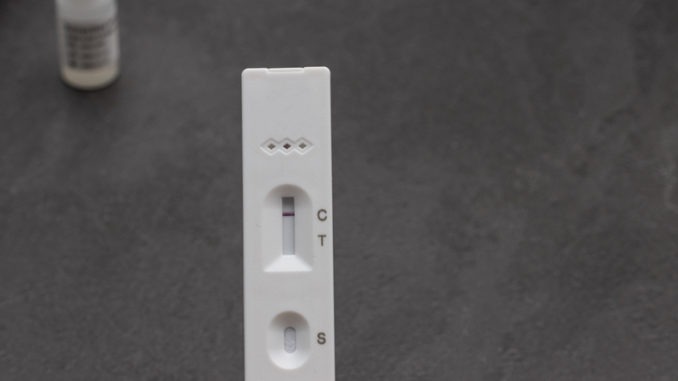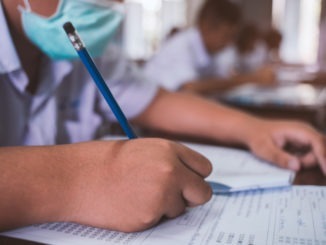
As reported by BBC news, regular testing of secondary pupils will be a “game-changer” in giving confidence that schools are safe, a government science adviser has said
Prof Calum Semple told the BBC better ventilation and face masks would also contribute to a safe reopening in England from 8 March. Rates of infection in schools had been “quite low”, he said. But a school leaders’ union warned the testing demands may mean a staggered return for many.
Secondary pupils in England will be asked to take a rapid lateral flow test twice a week to help identify anyone who might be infectious. Pupils are required to be given three initial tests at school or college before moving to home testing. There is no testing planned for primary school pupils.
Prof Semple, a member of the Scientific Advisory Group for Emergencies, told BBC Breakfast: “The good news is we’re finding quite low rates of active infection within the schools.”
He said 1.2% of secondary students and 1.6% of teachers had tested positive, quoting a survey published on Monday by the Office for National Statistics. The ONS tested about 12,000 pupils and teachers in early December. In some areas, only 0.4% of the tests came back positive, Prof Semple said. The introduction of regular testing would be “a game-changer, it is giving confidence that schools are safe,” he said.
Prof Semple said there was “more and more evidence that children are not the primary drivers of transmission within the community” unlike with flu.
Antibody tests which showed who had been infected in the past suggested that primary school pupils were about half as likely to have had the virus as teachers, while secondary school students were about two-thirds as likely, he said.
“I think we’re now at the stage where we can open the schools with extra measures: improved ventilation is going to be so important, face masks will help, and the lateral flow tests to identify the most infectious children,” the professor said.
Prof Semple said that a detailed examination into how teachers caught the virus suggested that they were more likely to be infected by another adult in the staffroom than by a pupil in class.
“It’s the interaction with other adults which poses the greater risk. Like doctors and nurses, they have to be just as careful in the coffee room and canteen as they are in the workplace environment of the classroom,” he said.
Geoff Barton, general secretary of the Association of School and College Leaders, told the BBC that the testing regime would “inevitably” mean a staggered start for secondary school pupils.
“Those young people won’t be able to go into their classroom until the first of those tests has been done,” he said.
He said it would depend on how much space each school has to conduct the initial tests, but suggested that the week of 8 March would be a “transitional week” for many, with a more normal level of attendance from 15 March.
Announcing the testing regime last week, Prime Minister Boris Johnson said it would offer “even greater reassurance”, although he said the evidence showed “schools are safe and the risk posed to children by Covid is vanishingly small”.
Reopening schools has been the government’s first priority as it eases England’s lockdown. Downing Street said regular testing will be voluntary and kits to perform the tests at home will be available within the first couple of weeks. Secondary pupils will also be asked to wear masks in classes, as well as in corridors and communal spaces as before, the prime minister’s official spokesman said. He added that the issue will be reviewed after Easter.
Prof Semple said that the experience so far is that after undergoing tests a couple of times under supervision, children “get used to” the swabs – which go in the nose or the back of the throat. He suggested the tests were also giving pupils an example of science in action.
“Perhaps we’re generating a new generation of scientists in the process,” he said.




Be the first to comment